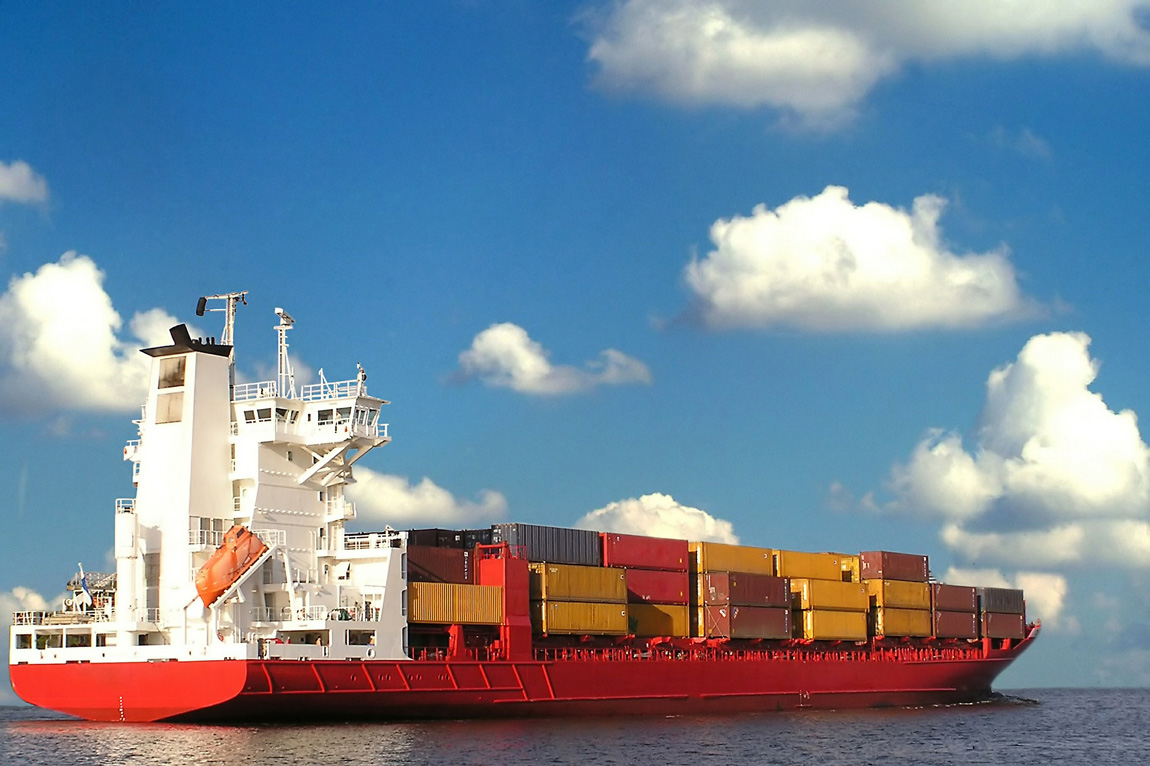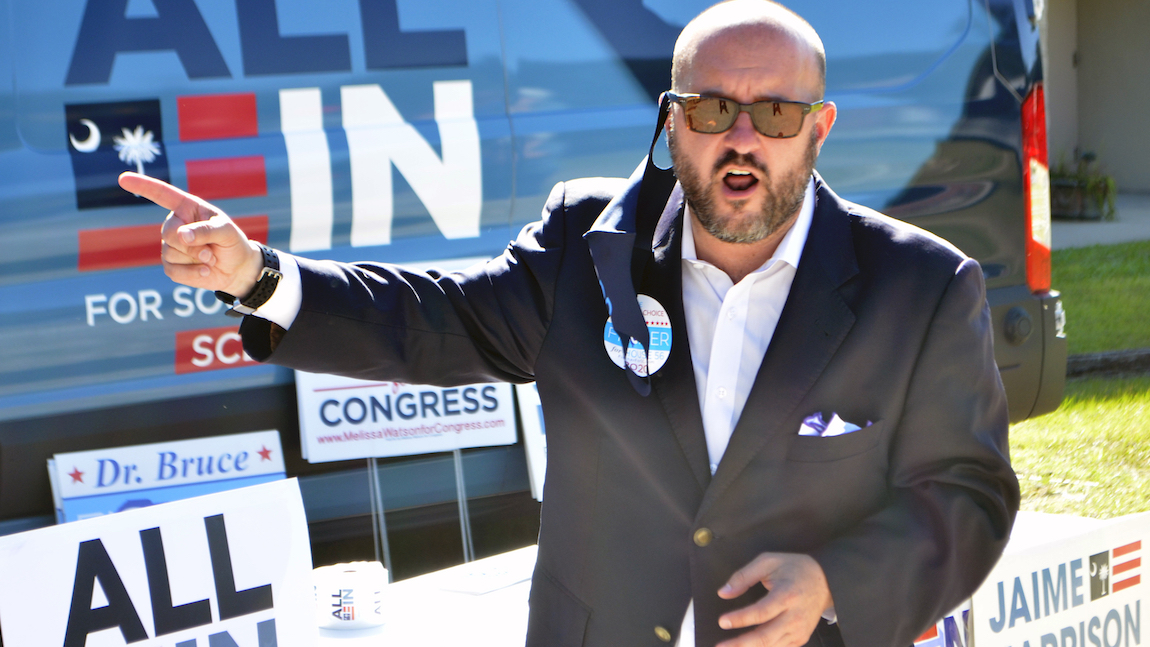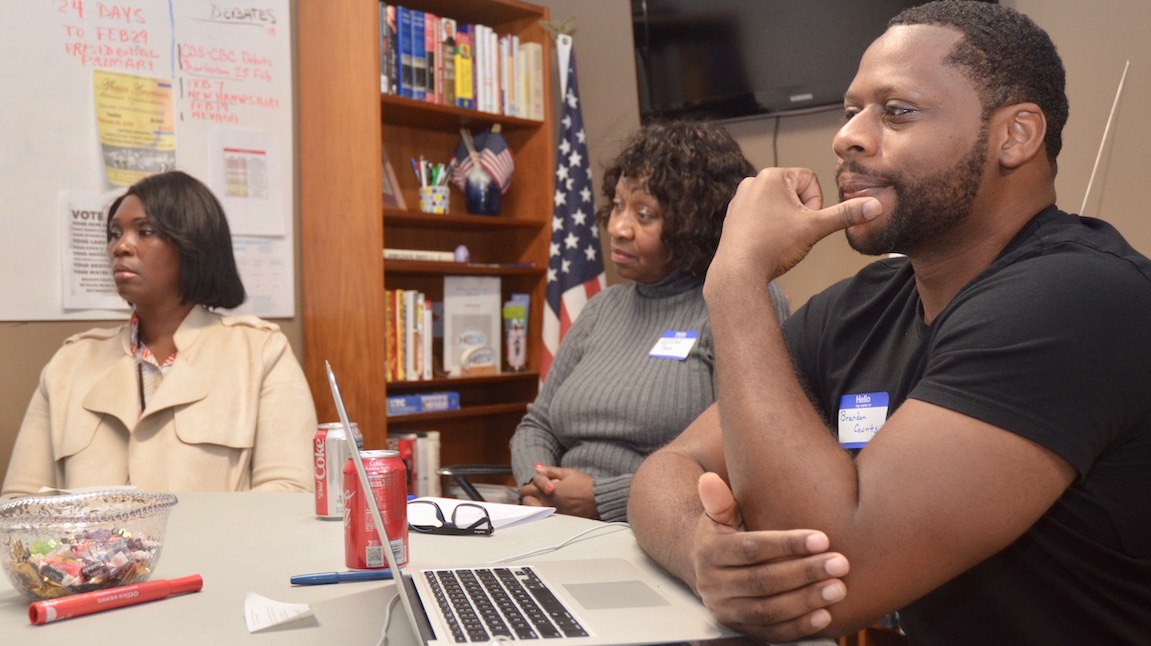Observers say President Trump’s trade policy hasn’t ignited a trade war, but it has certainly started a tariff battle. All battles have consequences and casualties, and Trump’s tariffs battle is no different. Trump claimed that trade wars are easy to win, but he also said that times might get tough for some. It’s not at all clear what’s easy or who will suffer when things get tough.
South Carolina’s Republicans Respond to the Tariffs
Governor Henry McMaster supported Trump early in his Presidential campaign and Trump stumped for McMaster this spring. Nevertheless, the White House rejected McMaster’s pitch for tariff relief for the Samsung plant in Newberry. Apparently, McMaster doesn’t have any real influence or there wasn’t much of a payback for his loyalty.
Despite what we already know, most members of the South Carolina Congressional delegation want to give Trump’s tariffs more time to work. Senator Lindsay Graham summed it up when he said “This will hopefully turn out well.” The idea of giving Trump more time and we’ll be okay is naive.
South Carolina’s Trade History
There’s too much at stake to hope that things will turn out okay. South Carolina Commerce Secretary Bobby Hitt explained: “The Palmetto State has a long and rich history of international trade.” He continued: “One time a leader in the export of rice, indigo, and cotton, we now export a more diverse group of products, including complex items, such as cars, planes and major household appliances.”
That outcome was not luck. It resulted from deliberate state policies focused on integrating South Carolina into the international economy. As the textile industry dwindled, South Carolina sought foreign direct investment in other manufacturing industries. There are many problems with the current globalized supply chains and trade arrangements, but tariffs are not the solution.
The Impact of Trump’s Tariffs on South Carolina
Automobile Industry
The new Volvo plant in North Charleston is a good example of international integration. Volvo is a Chinese-owned Swedish company that produces automobiles in South Carolina. Now, Volvo is thinking about how the tariff battle will affect its planning. Volvo planned to produce cars for the North America market and then expand production for export to China. However, Chief Executive Hakan Samuelsson said of Trumps’s tariffs: “Half of the 4,000 jobs will build cars for export.” and “That could be jeopardized if something were to restrict trade.”
South Carolina is the nation’s largest automobile exporter, so there’s more at risk than Volvo. BMW’s Greer plant employs 10,000 workers and last year produced over 272,000 vehicles. Moreover, in its comments on Section 232 tariffs, BMW reported that it directly and indirectly adds $6.3 billion annually to South Carolina’s economy and leads to the employment of 36,285 people. After Trump’s tariffs were announced, BMW decided to move production to China. When a major local and statewide contributor the size of BMW responds by leaving the state, it’s beyond time to hope.
Tire Industry
In 1978, Michelin began tire production in South Carolina and now South Carolina is the largest tire exporter in North American. When it announced plans to build two warehouses in South Carolina, Michelin employed roughly 9,000 workers. Michelin also commented on the Section 232 tariffs: “Imposing additional tariffs would negatively impact U. S. tire manufacturing operations and detrimentally impact revenues and productivity, as well as foreign direct investment that drives future growth, jobs and innovation of our business.” There’s a problem when one of South Carolina’s largest employers with a 40 year history of investing in the state goes on record opposing the Trump’s tariffs.
Agriculture Industry
There’s not space enough to go through all of the South Carolina jobs at risk with Trump’s tariffs. In addition to the manufacturing jobs, South Carolina’s farmers are at risk in the tariff battle. According to the US Trade Representative, South Carolina exported nearly $800 million of agricultural products in 2015, thus, ranking as the 34th largest agricultural exporting state in the country.
Secondary Industries
The export industries generate jobs in secondary support industries. Nine out of ten BMWs are exported through the Port of Charleston and those cars must get to the Port. Logistics and trucking companies grew to transport the export traffic to the ports. Growing exports increased activity at the ports and in 2016, South Carolina’s ports were ranked number ten in North America.
The Time is Now
Businesses don’t like risk and workers don’t like to live with the fear that they might lose their jobs. These initial consequences of Trump’s tariff battle could be the beginning of something worse. The risks of an all out trade war are less less domestic investment, more unemployment and a devastating recession. Now is not the time to wait and see while hoping things turn out okay. Now is the time to put an end to these reckless, and seemingly thoughtless, Trump’s tariffs and trade policy.
Contributed by Rick Patelunas






